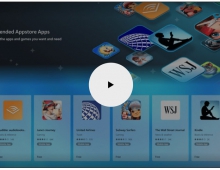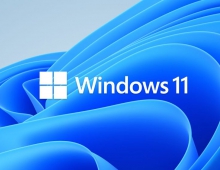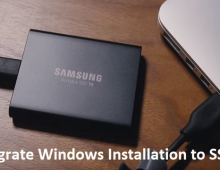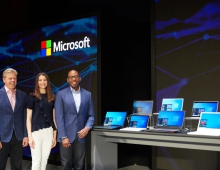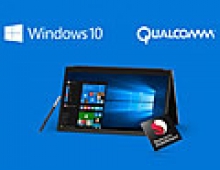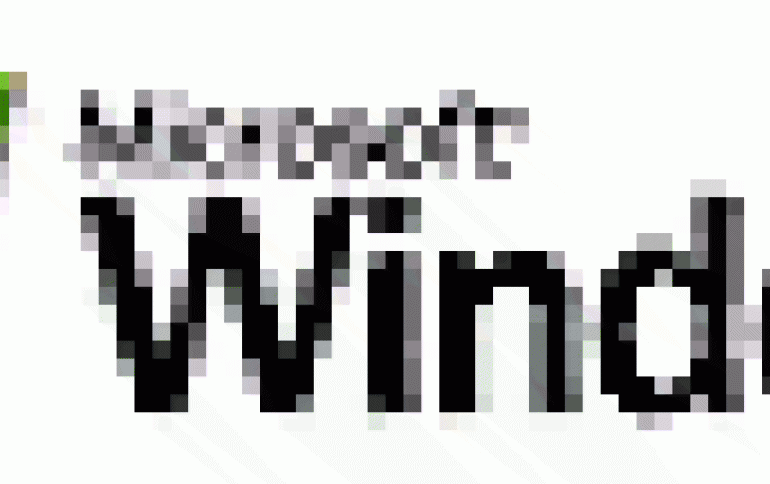
Gates: Longhorn Plus 64-Bit Equals Power
Bill Gates demonstrated the advances in software and computing power expected with Longhorn running on 64-bit computers Monday.
Speaking at the Windows Hardware Engineering Conference (WinHEC), Gates said that in the decade to come, the combo of Longhorn, a new-from-the-ground-up operating system, and 64-bit computing would create a new wave of powerful, fast devices, software and services.
A "richer" user interface will provide a different way for finding and working with information on the PC.
Although Microsoft had to cut WinFS, the database-driven file system from Longhorn, Microsoft has incorporated desktop search functionality that lets users organize and find files quickly, Gates said.
In a demo, program manager Arvind Mishra showed how Windows Explorer searches multiple file types, including photos, documents, e-mail, music and Internet history. Eventually, he said, it also will search SharePoint files too. A preview pane at the bottom provides information about each file and lets users add or modify meta data associated with the file. As well, each file and folder becomes in effect a preview:
Instead of a generic icon, the icon is a reduced image of the first page of the file, which can be expanded and read.
Users can create lists of documents, which are shortcuts to the actual files, then share them with others via built-in support for RSS. One user can build a list, and others with access to the documents can subscribe to the list via RSS .
WinHEC was the official launch for Microsoft Windows XP Professional x64 Edition and Windows Server (TM) 2003 x64 Editions, with general availability now. In a demo of the 32-bit and 64-bit versions of SQL Server 2005 running on the same hardware, the 64-bit edition was four or five times faster, allowing for not only more users but also more complex queries.
Gates predicted that the majority of new servers shipped in 2005 would be 64-bit machines. He said PCs would follow by 2006.
After half a decade of viruses, spyware and exploits, Microsoft is asking hardware makers to help out. The 64-bit chips for Longhorn machines will have integrated security features such as a "no-execute" rule, so that malware can't automatically install.
"That alone defeats a large class of exploits," Gates said.
Integrated hot-patching will let system administrators and Microsoft itself update systems without rebooting the PC. Gates said that Microsoft is expanding its Watson program that sends error reports that alert the company's engineers to problems in the software.
"We're taking Watson to a whole new level," Gates said. "We'll have the ability to record what's going on."
He said Watson would become similar to the black boxes in airplanes that record all flight data.
Addressing some 2,800 engineers, developers and product managers at the conference, Gates showed off three tablet PCs, including one with an ASUS-designed auxiliary display on the top of the case, similar to those on some cell phones. The display offers access to calendars, recent e-mail, digital media and other data. An "ultra-mobile" mini-tablet, designed to be used as an adjunct to a full PC, might appear by 2007, Gates said.
"Database oriented applications and terminal services applications will move very rapidly," Gates said. "On the client, it will take more time." He said that the most demanding client scenarios, such as video editing and 3D graphics, would quickly move to 64-bit. "Eventually you'll take it for granted," Gates said.
Microsoft started a Longhorn-Ready PC program and a logo program to let computer buyers know whether the hardware they're contemplating buying will be able to run Longhorn when it ships.
A "richer" user interface will provide a different way for finding and working with information on the PC.
Although Microsoft had to cut WinFS, the database-driven file system from Longhorn, Microsoft has incorporated desktop search functionality that lets users organize and find files quickly, Gates said.
In a demo, program manager Arvind Mishra showed how Windows Explorer searches multiple file types, including photos, documents, e-mail, music and Internet history. Eventually, he said, it also will search SharePoint files too. A preview pane at the bottom provides information about each file and lets users add or modify meta data associated with the file. As well, each file and folder becomes in effect a preview:
Instead of a generic icon, the icon is a reduced image of the first page of the file, which can be expanded and read.
Users can create lists of documents, which are shortcuts to the actual files, then share them with others via built-in support for RSS. One user can build a list, and others with access to the documents can subscribe to the list via RSS .
WinHEC was the official launch for Microsoft Windows XP Professional x64 Edition and Windows Server (TM) 2003 x64 Editions, with general availability now. In a demo of the 32-bit and 64-bit versions of SQL Server 2005 running on the same hardware, the 64-bit edition was four or five times faster, allowing for not only more users but also more complex queries.
Gates predicted that the majority of new servers shipped in 2005 would be 64-bit machines. He said PCs would follow by 2006.
After half a decade of viruses, spyware and exploits, Microsoft is asking hardware makers to help out. The 64-bit chips for Longhorn machines will have integrated security features such as a "no-execute" rule, so that malware can't automatically install.
"That alone defeats a large class of exploits," Gates said.
Integrated hot-patching will let system administrators and Microsoft itself update systems without rebooting the PC. Gates said that Microsoft is expanding its Watson program that sends error reports that alert the company's engineers to problems in the software.
"We're taking Watson to a whole new level," Gates said. "We'll have the ability to record what's going on."
He said Watson would become similar to the black boxes in airplanes that record all flight data.
Addressing some 2,800 engineers, developers and product managers at the conference, Gates showed off three tablet PCs, including one with an ASUS-designed auxiliary display on the top of the case, similar to those on some cell phones. The display offers access to calendars, recent e-mail, digital media and other data. An "ultra-mobile" mini-tablet, designed to be used as an adjunct to a full PC, might appear by 2007, Gates said.
"Database oriented applications and terminal services applications will move very rapidly," Gates said. "On the client, it will take more time." He said that the most demanding client scenarios, such as video editing and 3D graphics, would quickly move to 64-bit. "Eventually you'll take it for granted," Gates said.
Microsoft started a Longhorn-Ready PC program and a logo program to let computer buyers know whether the hardware they're contemplating buying will be able to run Longhorn when it ships.

